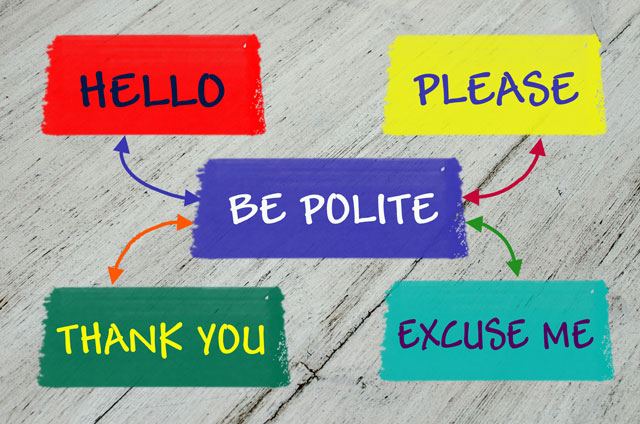One of the universal concerns for parents of teenagers is that their children will be unduly influenced by others and will abandon the values with which they were brought up. Unfortunately, this can happen. Thankfully, it does not have to. Study after study has demonstrated that actually, teenagers still look to their parents for guidance more than to their friends. Of course, this entire scenario gets much more complicated if parents have not been consistent and clear with their values and expectations as the child has grown up. This is often seen and poses the most challenges in situations where another person raised the child when they were younger or when the family itself has made significant changes to their values such as becoming religious. In these situations, it makes a lot of sense as to why a teenager may be confused about the values you expect them to live by. But the best news is that it is never too late to get started!
Before you can expect your child to live by certain values, you must determine what your own values are and what values you want all of your children to exhibit. For some people, especially those who are raised within a religious organization, this may be easy as they are typically more likely to assume the values of their group. For others, this may be quite a challenge. For anyone, it can become difficult when you start looking at having to choose between two values. When you consider some of the most controversial issues, you will find that there is rarely a situation where one side has values and the other side had none. Rather, what you will find is that typically speaking each side will have values that they believe in and are worth fighting to keep. Deciding where you stand on these issues is a matter of having to determine which value is stronger or more important to you.
Consider the example of abortion. Most people that are pro-life are so because they believe that the life of a human fetus should be protected. Alternatively, people that are pro-choice believe that a woman has an inherent right to determine what happens to her body. There are values on both sides of this issue; determining which value is more important is usually how someone determines where they stand on the issue.
Likewise, as a parent of a teenager, you constantly have to make choices about your own values, the values you want to pass along to your children, and how to instill those values so that in your absence they are still able to make good decisions according to the values that you have taught them. Choosing which values are more important is a highly individual process and explains a lot about different techniques of raising children. Just as your child will find themselves in situations where they have to make difficult decisions regarding values, as a parent you will do the same.
Consider the issue of teenage sex. This is a classic example of practicality sometimes being at odds with your values. If you have raised your children to abstain from sex until they are married, it may be difficult to decide what information you want to give them regarding birth control and sexual health, should they decide to become sexually active. Some parents believe that is more important to equip their children with knowledge about contraception and how to avoid sexually transmitted diseases rather than only discussing abstinence with them. Other parents believe that teaching their children about safe sex will be confusing to the child and may give the teen the impression that it is okay to have sex. These kinds of decisions are highly individualized and what works for one family may not be the same thing that works for another family. Moreover, what works for one child may be different from what works for another. (It is worth noting that research has shown that teenagers are able to distinguish between educational information and a change in family values, which may dispel the myth that a teenager will think an adult, is giving them permission to have sex by equipping them with knowledge about safe sex).
One of the trickiest parts of deciding what values to pass along to your children, especially in their teen years where the decisions get much more difficult, is anytime there is two (or more) parent family. It is more challenging to instill values when parents have different ideas from each other as to what those values should be. When parents that have different values live in different households, it is easier for teens to adopt the values of their primary caregiver but may cause some confusion and likely will cause some disruption when the child prefers one set values to another. In a two parent household where there is a significant difference in values between each parents, this can present an extremely challenging and frustrating environment for the teenager as well as for the parents.
Typically, it is very important that parents determine their values and which values they want to raise their children with earlier in the child's life. If you have not done so, or situations arise where parents are not sure that they agree on a topic, do your child a favor and discuss it privately, especially if the discussion is likely to be heated. This applies whether or not the parents are married or live in two separate households. Once a decision has been made between the parents, it can then be presented to the teenager. At this point, it may be helpful for each parent to share their perspective with the teen to promote critical thinking; do not do this with your child until or unless both parents have reached a conclusion as to how you will proceed or what value will dictate the rules.
While some values (such as not using drugs or engaging in premarital sex) are typically the ones parents are concerned about during their child's teen years (and rightfully so) it is also helpful to be prepared for your child to develop their own religious and political values that may be different from yours. For some children, this is likely to be merely a part of their own journey of independence and they will eventually return to the religious or political group where they were raised. However, some teens may not ever return, which can be very difficult for some parents. Disciplining your child for their change of values (unless the changed values violate the rules of your household or society) is usually ineffective and may be very damaging to your relationship with your child. As your teenager grows, they are learning how to think for themselves. Even if you do not like the conclusions that they come to, it is important for their development that you allow them this freedom.
That said, as always, it is appropriate and good for their development for you to challenge their changed beliefs. However, be careful when you engage in these discussions; make it clear that you are not criticizing your child, nor are you simply trying to get them to change back to having the same values that you hold. Rather, present it as a helpful way to learn about your child and their values as well as to challenge them to help develop their critical thinking skills.
Overall, as you attempt to guide your child by instilling and supporting your own values, always remember that they are becoming their own person and that person may have different values than you. It remains crucial that you stress your family values, explain your values in clear language so that they can understand, and be sure that they recognize that whatever values they choose to have, they must always respect your rules and the laws of your town, state, and country.
Establishing Rules
Once you and your spouse or other caregiver (if you are not parenting alone) have determined your values and what values you want to pass on to your children, you are ready to begin setting (or evaluating) the rules of your home. Rules should be determined by the values you have. It is confusing and frustrating (for everyone) when you expect your children to adhere to rules that are not a reflection of values. When your child was eight, explaining to them that they had to do something because mom (or dad) said so may have been sufficient. As your children become teenagers, they are likely to be a lot less satisfied with this answer than they may have been at eight. Moreover, it is important for their development that they understand the reason and rationale behind rules, even when they may not agree. Thus, it is very helpful for you to explain to your child what the rules are and why. However, before you can do that, you have to be prepared by understanding the rules yourself.
Behind every great rule there is typically one or two main themes. These themes are usually safety and respect. Virtually every rule is (or should be) designed to teach a child how to respect others and him- or herself; in this way, even rules based on safety do revolve around the concept of respecting oneself. For religious families, respecting God may also be an important value. Consider the following examples:
- No bad attitudes or talking back to mom or dad. At its heart, this rule is clearly designed for the child to treat their parents with respect.
- Call if you are going to be home late. This rule may help a child show respect to their parents by not making them worry needlessly; it may also help them respect others' time such as in instances where they may be late for dinner or a family function.
- No drug use. Not using drugs shows respect for oneself, respect for their parents and other family members (who could be endangered by drug use or having drugs in the house), and respect for the law (which, as it turns out, is quite important).
Sometimes your teen may not understand that some of your rules are for their own benefit and may not see it as a matter of respect. For example, requiring adherence to a curfew may not be understood as a respectful thing by a teenager. To most teens, it is not disrespectful to stay out all night unless their parent does not trust them. Rather than simply arguing about it, talk to them about the kinds of things that happen late at night or in the early hours of morning that may involve needless danger or threaten their well being. Help them understand that you are concerned for their safety and should not be expected to stay up until 3:00 AM just so they can watch another movie at their friend's house. You might also explain to them how unhealthy chronic sleep deprivation canbe. Chances are, they will continue to disagree with the rule, but you have demonstrated to them that you have a reason for the rules that they are expected to live by.
You do not need to (and really should not) engage in an argument. Sharing your reasons for the rules they live by is important but should not be confused with you having to defend yourself or your teen believing that they have to agree with the rules to be expected to live by them.
Individual Considerations
When you have determined your values and the role that they play in making the rules of the house, it is time to consider your individual child. Some rules are perfectly appropriate to be universal and do not need to consider the individual personality and habits of each child.
However, not all children are the same and as a parent, your job is to meet the needs of your child. In fact, if you have more than one child (or even more than one teenager) it is completely acceptable to have rules that change based on the child. If you make rules that are more restrictive for one child because of past behavior, their sibling should not be expected to pay for their mistakes (this requires the parent to determine honestly whether or not the rule was a good one in the first place).
Likewise, if you have a rule that your child has been following but you determine that you are no longer comfortable with that rule for whatever reason, you have the right to change the rules. The important thing to do here is to let your child know the reason for the rule change so that they are clear that it was not through any bad action on their part.
Establishing Consequences
Obviously, rules are pointless without consequences. As a parent, one of the most important things you can do to prevent bad behavior is to have already determined the consequences for breaking any rules and communicated those consequences to your child.
Consequences should make sense. If your rules are based on values, your consequences should reflect that as well. Whenever possible, use the concept of natural consequences. Natural consequences tend to be situations where the consequence is related directly to the rule breaking.
For example, if your teen goes overboard with texting and your bill arrives three times higher than the normal rate, a natural consequence may involve your child helping pay the phone bill and/or losing phone privileges for a period.
Not allowing your child to go to the birthday party of a friend would not be a natural consequence. Although there are some situations where natural consequences may not be sufficient, they typically can work surprisingly well. Rationally speaking, if your child valued whatever they did (or did not do) over following your rules, it naturally follows that a loss relating to what they did is likely to have significant impact as they have shown that it is important to them.
It may be difficult to remember, but many of the things you make available to your child are privileges; your teen does not have any right to a number of things they enjoy. Cell phones, I-pads, mp3 players, laptops, e-readers, cars, money, and so on are all privileges that you may (or may not) allow your child to have or participate in. If your child is violating your rules regarding any of these things, respond appropriately. Their world will not shut down if they lose their cell phone privileges regardless of how much they may say it will.
Sometimes, the actions taken by your teen may be wildly inappropriate and require harsher penalties. Nevertheless, there are some methods of punishment that are never appropriate.
Physical abuse is not an appropriate disciplinary technique. In most states, physical abuse is usually interpreted as any time that a child may be struck with anything other than an open hand, on any place other than their buttocks, and should not ever result in visible bruises or welts. If the actions taken by your teen are so inappropriate that you find yourself struggling not to hit them, remove yourself from the situation until you are in better control of your emotions. Unlike a three year old, your teenager will still understand why they are in trouble even if they have to wait an hour before you respond.
Emotional abuse is likewise inappropriate. Calling names and making sweeping judgments (such as, "You always make the stupidest decision possible!") are both ineffective and highly damaging to your teen's psychological development. Over the past few years there has been an increase in incidents of shaming a child (such as forcing a 12 year old to stand on a busy street corner holding up a sign stating that they stole something or broke a rule). However, shaming a child in such a way has the potential to do far more harm than good, especially if you have a sensitive child. While minor bouts of shame and guilt may have an important role to play in your child's development, they should be naturally occurring and do not need to be public. If your child has hurt someone with their behavior, apologizing to that person is appropriate and the embarrassment that is likely to accompany such an apology is a natural consequence. Making your child an object of ridicule for the general public, no matter how grievous their rule breaking, is far more likely to do harm than good.




























